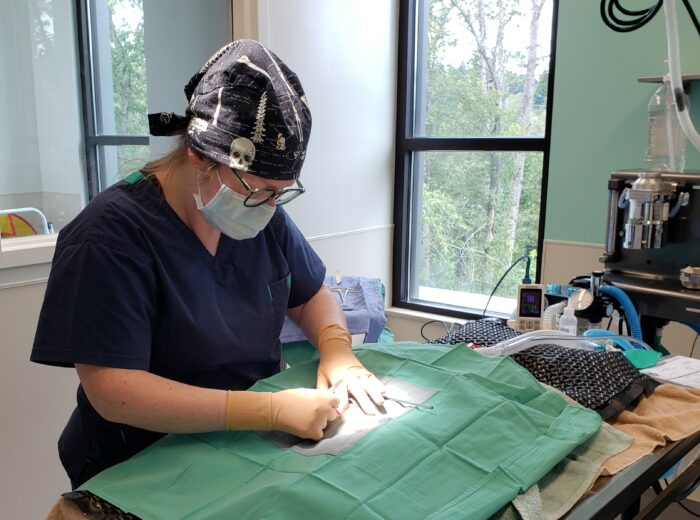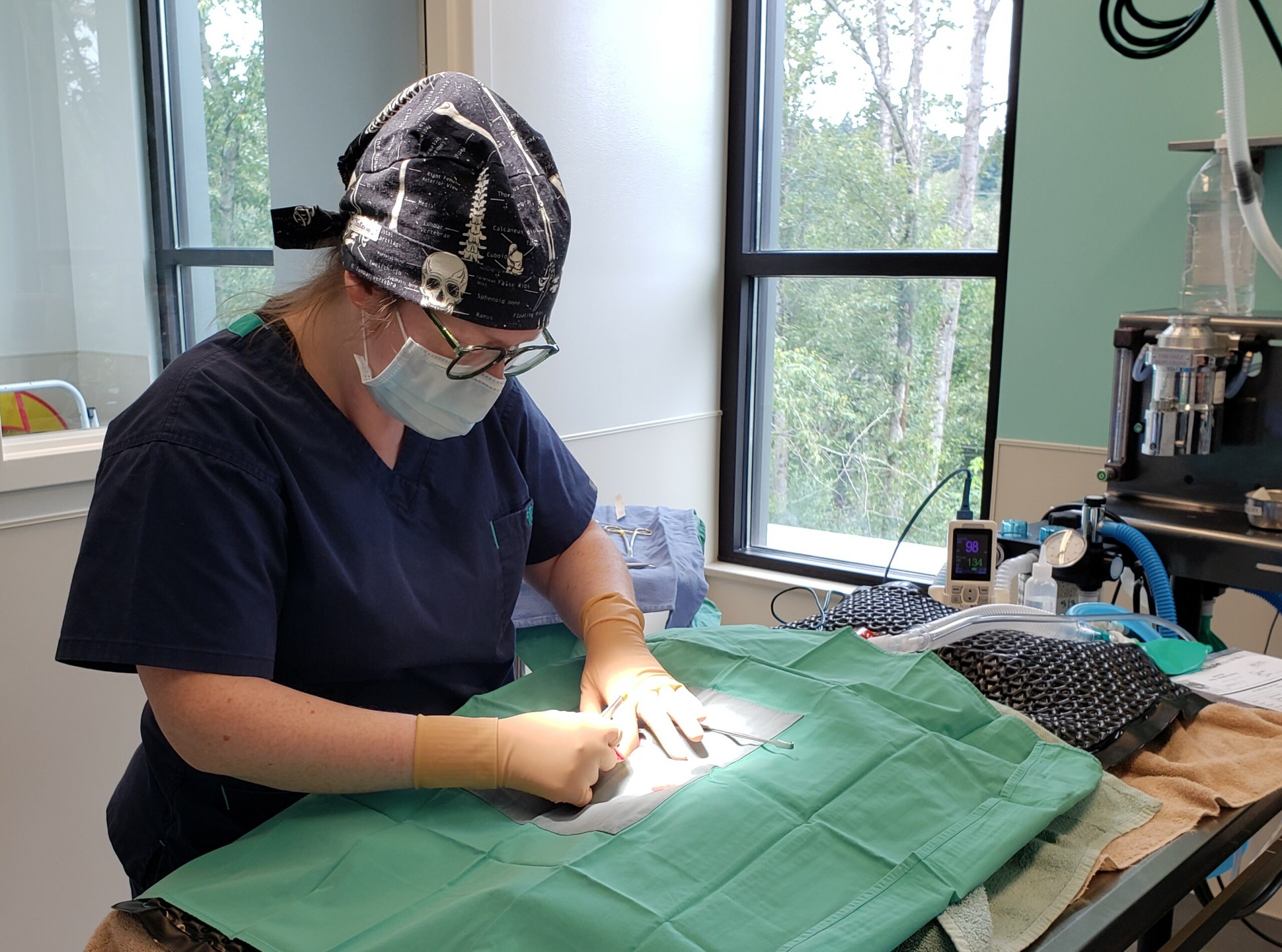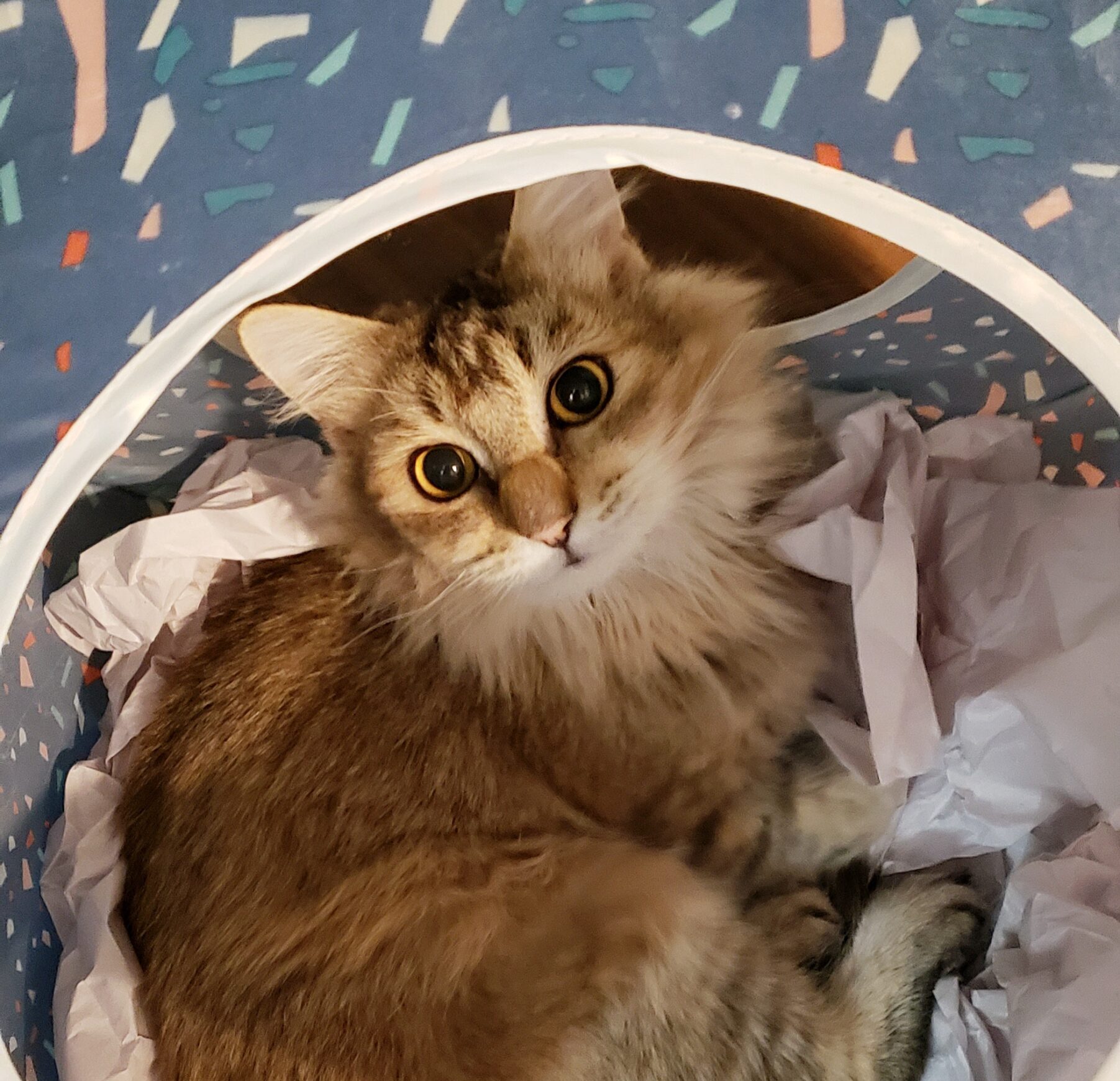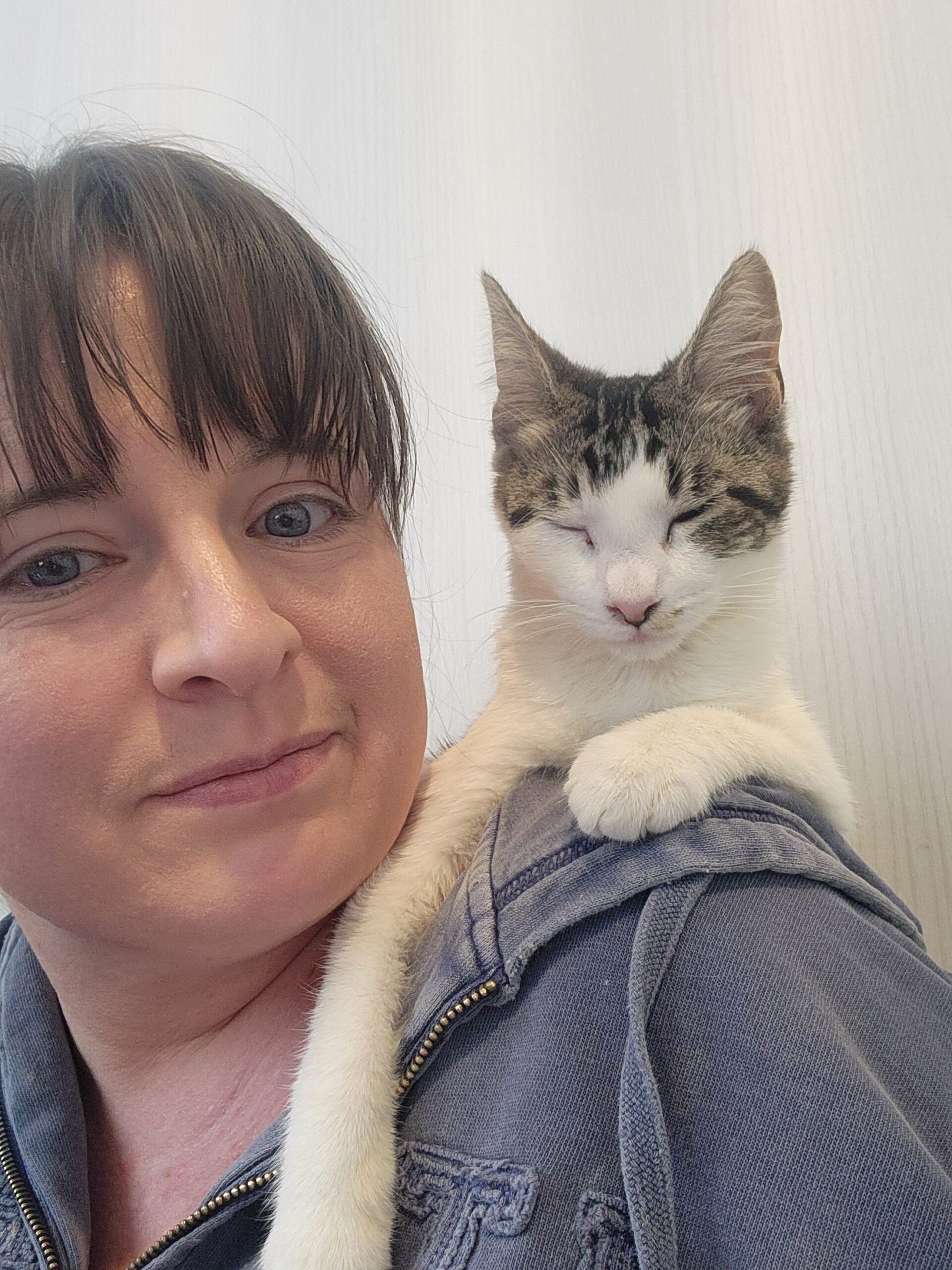
There are many reasons to spay or neuter your pets, beyond the obvious desire to avoid unwanted pregnancies and address the pet homelessness crisis. World Spay/Neuter Awareness Month is a perfect opportunity every year in February for veterinary professionals to raise awareness and promote these lifesaving procedures. Every shelter pet that comes through Seattle Humane is spayed or neutered before going home with their new families, but maybe you have an unaltered pet at home and are on the fence. While there are varying opinions regarding the age when spay and neuter surgeries should be performed, the majority of veterinary experts agree it will result in better behaved and healthier pets.
Unwanted Litters
Let’s start with the very simple fact that unaltered cats and dogs can get pregnant and, in many cases, this is an unexpected and undesired surprise for pet owners. There is the added expense of caring for a litter of puppies or kittens, not to mention the potential complications that can arise during the pregnancy and while giving birth; your mother-to-be could require an emergency C-section.
We see unwanted litters come through Seattle Humane regularly, and particularly during kitten season. This scenario plays out in animal shelters in the United States and around the world. Seattle Humane runs a high-quality and high-value spay and neuter program, but not all shelters have the capacity or resources to provide this service, let alone to care for so many unwanted animals. This combination of circumstances can result in animals being euthanized.
A female dog goes into heat roughly two times a year, which means they could potentially have two unwanted litters in a year. Female cats have a seasonal heat cycle, which is most of the year, and can go into heat roughly once a month during that time. A female cat could potentially have up to four litters in a season, which is why controlling the homeless cat population tends to be even more difficult than with dogs.
Health Problems
The elevated estrogen levels produced by unaltered female cats and dogs contribute to not only uterine infections and cancers, but also greatly increase the risk of developing mammary cancer, which is often very aggressive and can spread quickly. We encourage pet owners to spay their female dogs and cats prior to their first heat cycle (before 6 months). For every heat cycle they go through, their risk of developing one of these cancers later on in life increases. Pyometra – an infected uterus – often occurs once a dog or cat has gone into heat. If left untreated, this condition can rapidly become life-threatening. The treatment for pyometra is an emergency spay surgery and antibiotic medications. Pyometra surgery is more complicated, and there is an increased risks of death during and after surgery.
In male cats and dogs, elevated testosterone levels can result in testicular and prostate cancers, the latter being less common. Enlarged prostate glands can occur, which could cause difficulty passing urine.
The simple solution to stopping these hormonally-driven medical conditions is to reduce hormone levels through spay and neuter surgery.
Behavioral Issues
Dogs have a remarkably keen sense of smell. Male dogs can detect a female in heat from several blocks away, and their hormonal drive to reproduce means they will go to great lengths to do so. It’s not uncommon for them to escape their yards and cross many streets in an attempt to find a mate, and sometimes with disastrous consequences. Performing neuter surgery prior to puberty in dogs can help to prevent unwanted behaviors, such as mounting pets or people.
Unaltered male cats are known to spray urine as a form of establishing territorial markers, and the rancid stench isn’t hard to identify. Male cats will also get in fights with each other when seeking a mate, and this can result in spreading feline leukemia (FeLV) and feline immunodeficiency virus (FIV).
Female cats will yowl incessantly when in heat, which, as previously stated, occurs multiple times a year. While not a behavioral issue, female dogs in heat will pass bloody fluid for about 10 days – about two times a year – so expect to be cleaning your carpets frequently.
A Better World
Spaying and neutering results in happier, healthier and better behaved pets, and fewer unwanted animals entering the shelter system where they are at risk of being euthanized. You will potentially save on your vet and cleaning bills, and you won’t have to worry about your pet running away and potentially being struck by a vehicle or getting into an altercation with another unaltered animal.
Due to nationwide veterinary staff shortages, Seattle Humane is accepting only limited appointment requests for surgery at this time. However, we hope those of you who have hesitated to get your pet spayed or neutered have learned a lot about all of the positives and will get that surgery scheduled with your vet!
Seattle Humane Senior Staff Veterinarian Dr. Caitlin Malarkey contributed greatly to this article. Dr. Malarkey is a 2013 graduate of The Ohio State University College of Veterinary Medicine. She completed a shelter medicine internship at The Humane Society of Boulder Valley in 2014, and worked for two years at The Animal Defense League of Texas in San Antonio prior to joining the staff at Seattle Humane in 2016.









